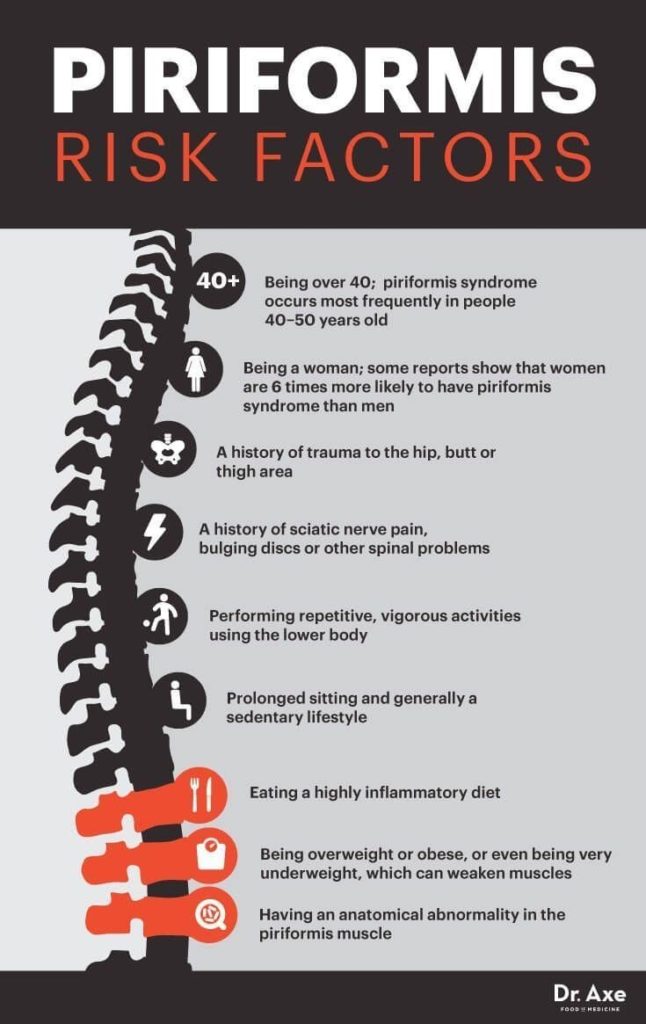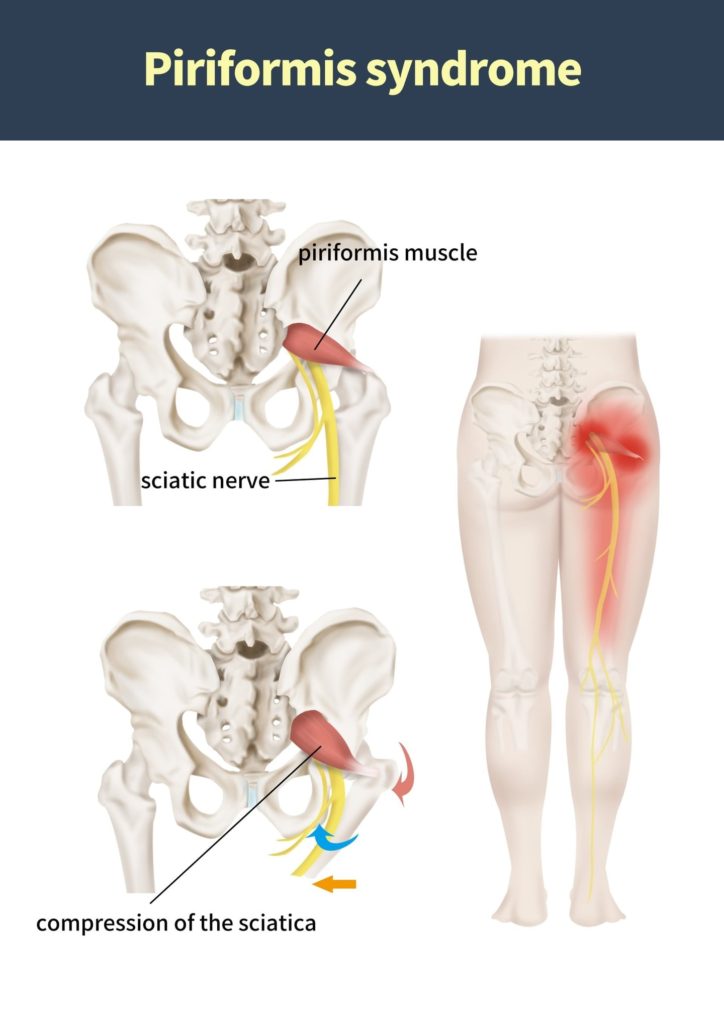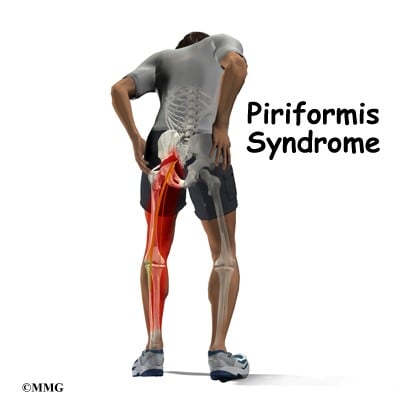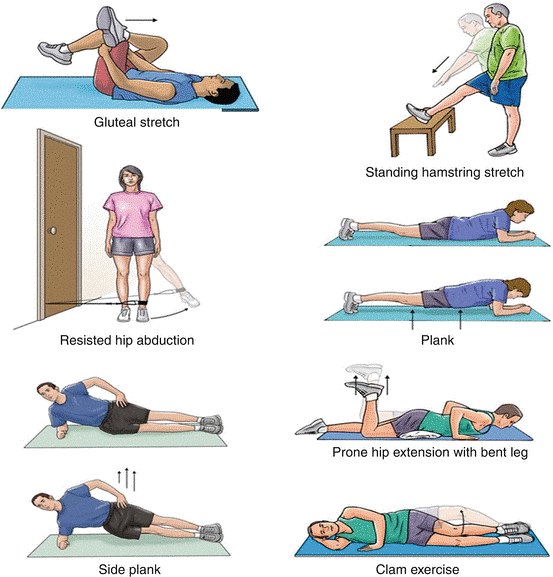Piriformis Syndrome
Piriformis syndrome, commonly referred by many people as “Butt Pain” is a painful musculoskeletal condition in which the piriformis muscle, located in the buttock region, spasms and causes hip or buttock pain.
The piriformis muscle can also irritate the nearby sciatic nerve and cause pain, numbness and tingling along the back of the leg and into the foot (similar to sciatic pain).
This muscle is important in lower body movement because it stabilizes the hip joint and lifts and rotates the thigh away from the body. This enables us to walk, shift our weight from one foot to another, and maintain balance – in short, in almost every motion of the hips and legs.
Causes – The exact cause of piriformis syndrome is unknown but here are few suspected causes which includes:
• Muscle spasm in the piriformis muscle, either because of irritation in the piriformis muscle itself, or irritation of a nearby structure such as the sacroiliac joint or hip
• Tightening of the muscle, in response to injury or spasm
• Swelling of the piriformis muscle, due to injury or spasm
• Overuse from excessive exercise (running, squatting)
• Sitting for extended periods
• Any repetitive activities involving the legs
• Extensive stair climbing
• Lifting heavy objects
• Sudden twist of the hip
• A bad fall
• Direct hit during sports
Any one or combination of the above problems can affect the piriformis muscle (causing buttock pain) and may affect the adjacent sciatic nerve (causing pain, tingling, or numbness in the back of the thigh, calf, or foot).
Symptoms – Most commonly, patients describe acute tenderness in the buttock and sciatica-like pain down the back of the thigh, calf, and foot. Typical piriformis syndrome symptoms may include:
• A dull ache in the buttock
• Pain down the back of the thigh, calf, and foot (sciatica)
• Pain when walking up-stairs or inclines
• Increased pain after prolonged sitting
• Reduced range of motion of the hip joint
• Symptoms of piriformis syndrome often become worse after prolonged sitting, walking, or running, and may feel better after lying down on the back.
• Numbness and tingling in the buttocks that may extend down the back of the leg
• Tenderness of the muscles in the buttocks
• Difficulty sitting comfortably
• Pain in the buttocks and legs that worsens with activity
• Sometimes limping while walking
Physical Therapy Interventions –
• Hot packs/Cold packs – depending upon cause & state (acute/chronic)
• Soft tissue mobilization
• Therapeutic Ultrasound
• Stretching exercises
• Strength training exercises (using bands, weights, etc.)
• Electrotherapeutic pain relief modalities like TENS or IFC
• Trigger point release
• Massage – Sports massage/soft tissue massage/deep friction massage
• Shockwave Therapy
• Correction/Advise on ergonomics & postural correction techniques
If you have any of the above symptoms, don’t wait! If left untreated, piriformis syndrome can become lifestyle limiting, where you can’t do activities you used to enjoy!
We will help assess your root cause for the pain and tailor your treatment for the best possible recovery.
For further information, reach out to us at –
Pooja Physiotherapy & Health Care Center Blk 77 Indus road #01-521S’160077 Call now @6384 5452 or Whatsapp @8322 3371 or Drop an email at info@physiopooja.com.sg Visit our website www.physiopooja.com.sg




